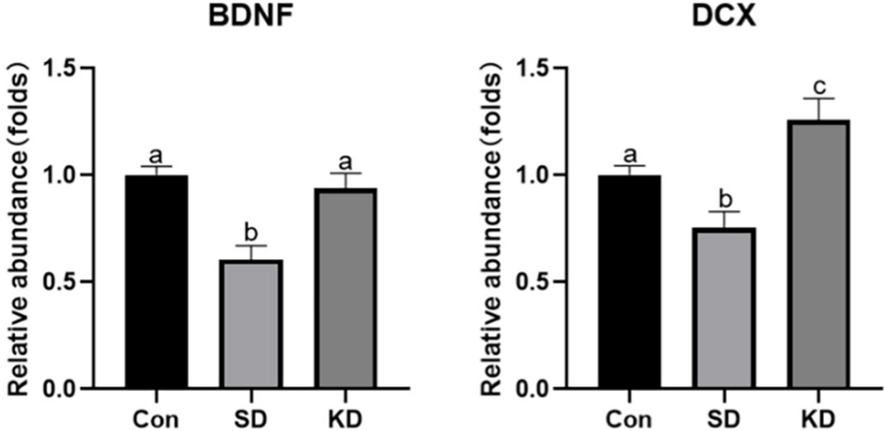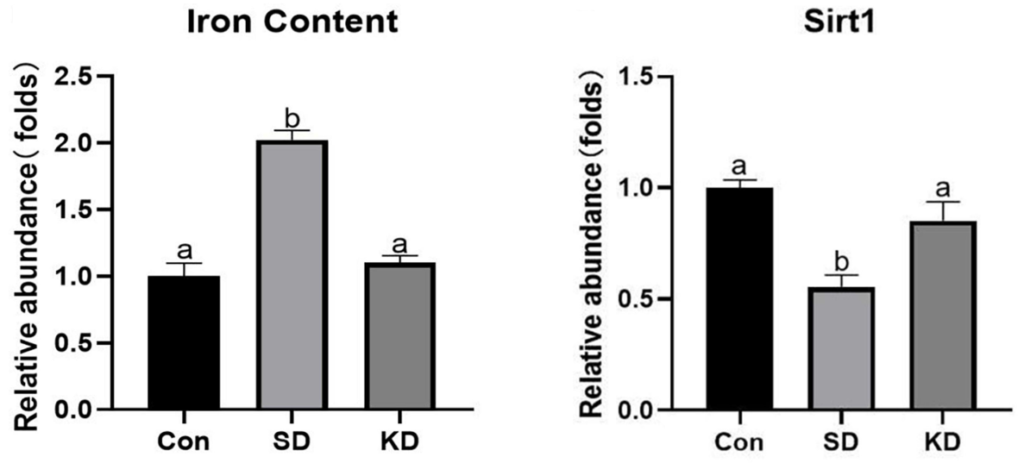Study Shows Ketogenic Diet Prevents Sleep Deprivation-Induced Alzheimer’s
Chinese scientists find that sleep deprivation induces signs of Alzheimer’s in mice, which can be prevented with a ketogenic diet.
Highlights:
- A ketogenic diet (KD) prevents cognitive impairments induced by sleep deprivation (SD).
- KD restores critical factors involved in new neuron growth and survival.
- SD increases brain iron content and reduces sirtuin — longevity-associated enzyme — levels, which KD prevents.
As the global prevalence of Alzheimer’s disease (AD) increases, scientists have opened their minds to new potential treatment and prevention options. Along with factors like aging, sleep deprivation (SD) is a major risk factor for AD. Thus, finding ways to prevent SD-induced brain aging may prove useful in preventing AD.
Now, Yang and colleagues from Liaocheng University in China report in Frontiers in Aging Neuroscience that KD prevents SD-induced AD. They show that SD mice display cognitive impairments, reductions in neuron survival and growth proteins, increased brain iron content, and reduced sirtuin levels. Yet, KD largely prevents these deficits, making it a potential candidate for preventing AD.
Ketogenic Diet Prevents Sleep Deprivation-Induced Cognitive Impairments
Older 12-month-old mice (equivalent to 58 human years) were fed either a standard diet or ketogenic diet (KD) — 12% protein, 32% carbohydrates, and 46% fat from soybean oil. An automated SD system was used to keep some mice awake for 21 days straight. The system involves a bar that rotates across the entire mouse cage floor 5 times per minute.
The Morris water maze test was used to test cognition, whereby mice were trained to learn and remember the location of an escape platform in a pool of water. Compared to well-rested mice, SD mice crossed the escape platform less and took longer to escape, indicating reduced cognitive performance. However, KD prevented these SD-induced learning and memory impairments.

After testing cognition, Yang and colleagues removed the brains of the mice to examine their hippocampus — the primary brain region involved in consolidating memories. They found that SD reduced brain-derived neurotrophic factor (BDNF) — a critical protein involved in neuron survival and growth — and DCX, a typical marker for new neuron production. KD restored these factors, suggesting its effect on protecting against neurodegeneration.

Ketogenic Diet Reduces Brain Iron Content and Elevates Sirtuins
Iron helps maintain normal brain function, but iron levels increase during aging, with the highest levels seen in AD patients’ brains. Moreover, high iron concentrations correlate with poor cognitive performance in AD patients. Furthermore, excessive iron leads to ferroptosis — iron-dependent cell death — which is linked to AD and other neurodegenerative diseases.
Yang and colleagues found that SD nearly doubled the hippocampus iron content of older mice. However, KD restored the relative abundance of iron. The researchers also found that AD-related proteins, beta-amyloid and tau, were increased by SD but restored by KD. Iron accumulation can worsen the accumulation of these AD-related proteins, suggesting that KD reduces SD-induced AD pathology, in part, by restoring iron.

Sirtuins are enzymes that modulate cell survival processes and are associated with increasing the lifespan of mice. Among their many functions, sirtuins activate proteins that modulate the increase of cellular antioxidants. Yang and colleagues found a reduction in sirtuin enzymes and antioxidant proteins in the hippocampi of SD mice. However, both sirtuin and antioxidant levels were largely restored by KD, suggesting that increased sirtuin activity underlies the beneficial effects of KD.
Can the Keto Diet Help Prevent Brain Aging?
Brain aging is currently poorly defined but can be likened to the gradual decline in cognition that accompanies progressive neurodegeneration, often leading to symptoms of dementia. While the underlying causes of neurodegeneration and cognitive decline remain unclear, inflammation and oxidative stress — damage caused to cells by excessive oxidant molecules — play a crucial role.
Yang and colleagues show that SD-induced cognitive impairments and brain pathology can be prevented with KD via increased sirtuins and antioxidants, which counter oxidative stress. Additionally, another study has shown that KD has similar effects via reducing inflammation. Furthermore, a similar diet has also been shown to ameliorate cognitive decline and neurodegeneration via reducing inflammation. While these mouse studies are promising, there have yet to be large clinical trials exploring the effect of KD on neurodegeneration and cognitive decline.
Model: Female C57BL/6 mice
Dosage: A ketogenic diet (12% protein, 32% carbohydrates, and 46% fat)

